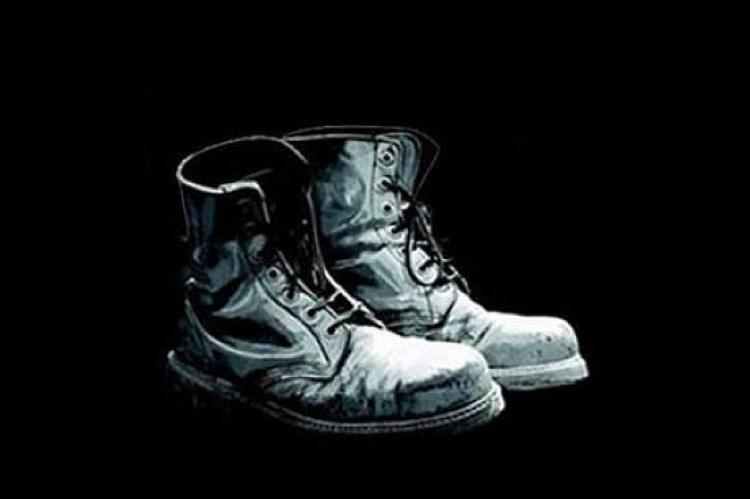Claim: Military coups keep Turkey on track
2016-02-22 02:03 GMT
Posted in:
Robert Ellis from The Independent claims military coups between 1960 and 1980 keep Turkey on track
On 4 February 2016, Robert Ellis wrote an article in The Independent newspaper in which he claimed that military coups between 1960 and 1980 kept Turkey’s democratic development on track.1 He wrote:
Until 2002, when the AKP (Justice and Development Party) came to power, Turkey was doing pretty well in following Kemal Atatürk’s dictum: “peace at home, peace abroad”. Admittedly, there were three military coups between 1960 and 1980 to keep Turkey on track, together with ‘a soft coup’ in 1997.
Despite Ellis’ claims; these coup d’états harmed democracy in Turkey by toppling elected governments, revoking the constitution, abolishing the parliament, and leading to the arrest of deputies. There were human rights violations against citizens, including executions, torture and killing. Under junta rules, there were restrictions on the freedom of expression, bans on political activities and crackdowns on the media. Military coups also resulted in economic regression and the introduction of a constitution that protects the military-bureaucratic tutelage regime.
After the 1960 military coup, according to an investigation report published by the Grand National Assembly of Turkey, 228 people from the Democrat Party, including leaders and deputies, were jailed and referred to receive the death penalty.2 Toppled Prime Minister Adnan Menderes and two ministers were executed by hanging. Journalists and writers were detained and tried. Likewise, after the 1971 military coup, many academicians, writers, journalists and union leaders were jailed. Censorship was applied on media and many publications were banned. Furthermore, after the 1980 military coup, the parliament was abolished, the Constitution is suspended, political parties and non-governmental organizations were closed and politics was banned. Thousands of citizens sought refuge outside the country.
Amnesty International in 1982 reported that 30,000 people were jailed for political crimes.3 Another news story reported that 7,000 people faced the death penalty and 50 of them executed after the coup. For 300 days following the coup, no newspapers were published. 31 journalists were put in jail. Teachers, academicians and judges were ostracized from profession. 14,000 people had their citizenship revoked.4
Previously, The Independent published many articles that disapproved military coups in Turkey. Some of them read as follows:
On 25 February 2010, Daren Butler named coups in Turkey as the “the forces' leadership” and added that “Turkey's NATO allies want to see the Muslim nation mature as a democracy.”5
On 15 February 2012, Patrick Cockburn conducted an interview with a soldier who was working as jail torturer during the 1980 coup and regretted what he had done.6
On 5 April 2012, Justin Vela named the 1980 military coup as “a bloody coup d'état” and wrote “Following the 1980 coup, martial law was declared, the constitution revoked, and political parties abolished. Half a million people were arrested. Torture was pervasive, and up to 50 people were executed by hanging.”7
Referring to coup leader Kenan Evren, Vela continued saying “Evren ruled for almost nine years, during which time a new constitution was written that ensured that the coup's instigators were immune from future prosecution.” He also stated that the prosecution of the leaders of the coup is an advancement in democracy and justice in Turkey.
On 9 June 2013, Patrick Cockburn wrote that “Turkey has had four military coups since 1960, which vie with anything that happened in Iraq or Argentina for the cruelty of the repression. In the 1980 military coup 450 people died under torture, 50 were executed and many others disappeared. At least 178,000 people were arrested and almost all tortured, while 64,000 were jailed.”8
On 11 May 2015, Suzan Fraser wrote about the 1980 military coup, saying that “Around 650,000 people were detained and 230,000 prosecuted in military courts.”9
- 1. http://www.independent.co.uk/voices/erdogan-is-on-the-brink-of-ultimate-...
- 2. https://www.tbmm.gov.tr/sirasayi/donem24/yil01/ss376_Cilt1.pdf
- 3. http://www.amnesty.org/en/library/asset/POL10/004/1982/en/cc4aa2e6-ba5b-... 4a63a7bb91b3/POL100041982eng.pdf
- 4. http://www.aljazeera.com.tr/kronoloji/kronoloji-oncesi-ve-sonrasiyla-12-... -
- 5. http://www.independent.co.uk/news/world/europe/turkey-charges-seven-seni...
- 6. http://www.independent.co.uk/news/world/europe/working-as-a-jail-torture...
- 7. http://www.independent.co.uk/news/world/europe/turkeys-former-president-...
- 8. http://www.independent.co.uk/voices/comment/erdogans-mishandling-of-prot...
- 9. http://www.independent.co.uk/news/people/news/kenan-evren-general-who-le...



